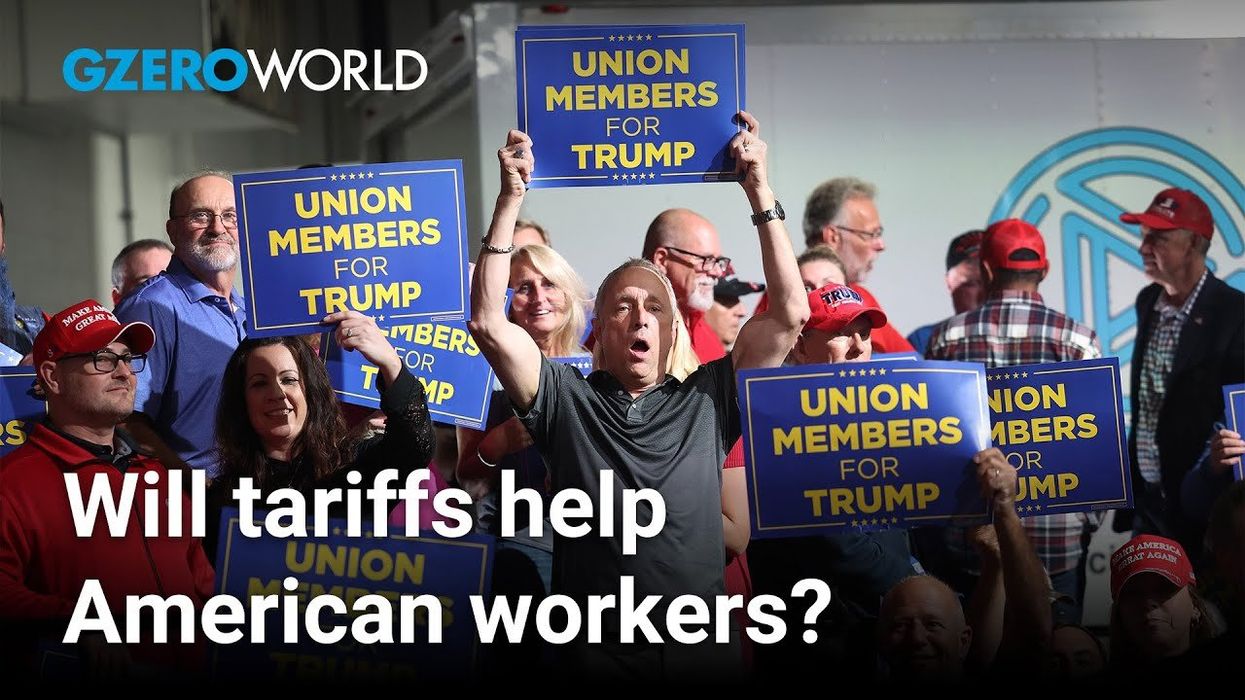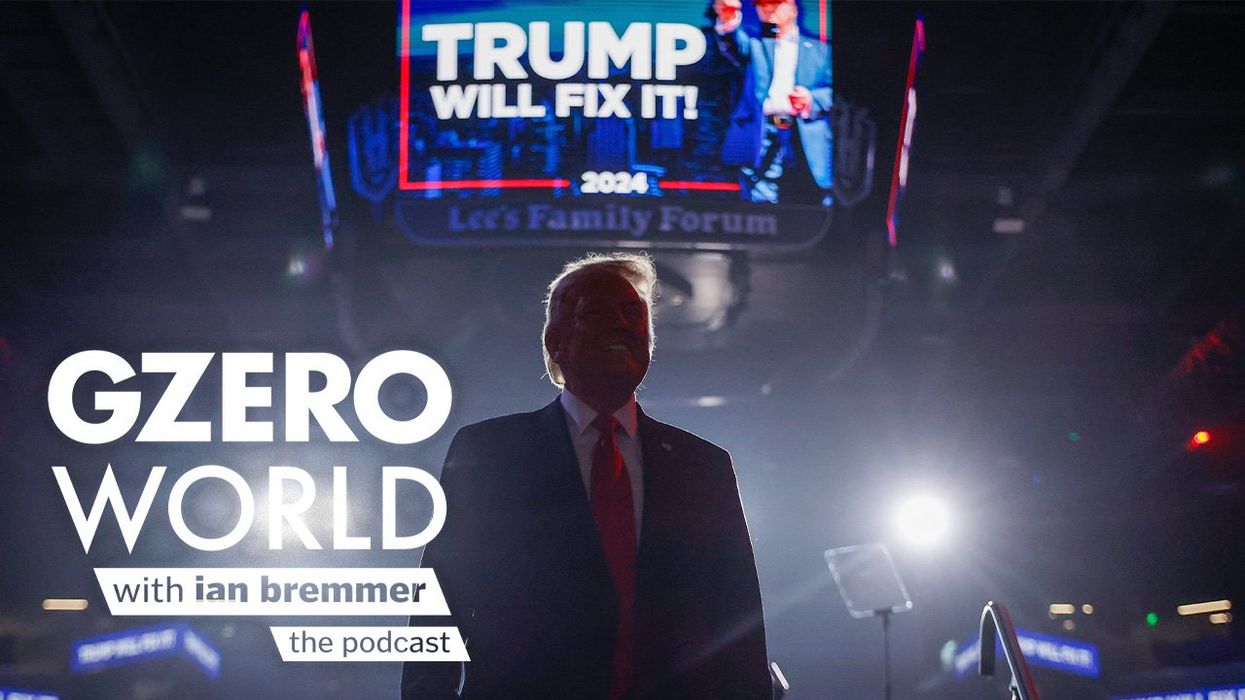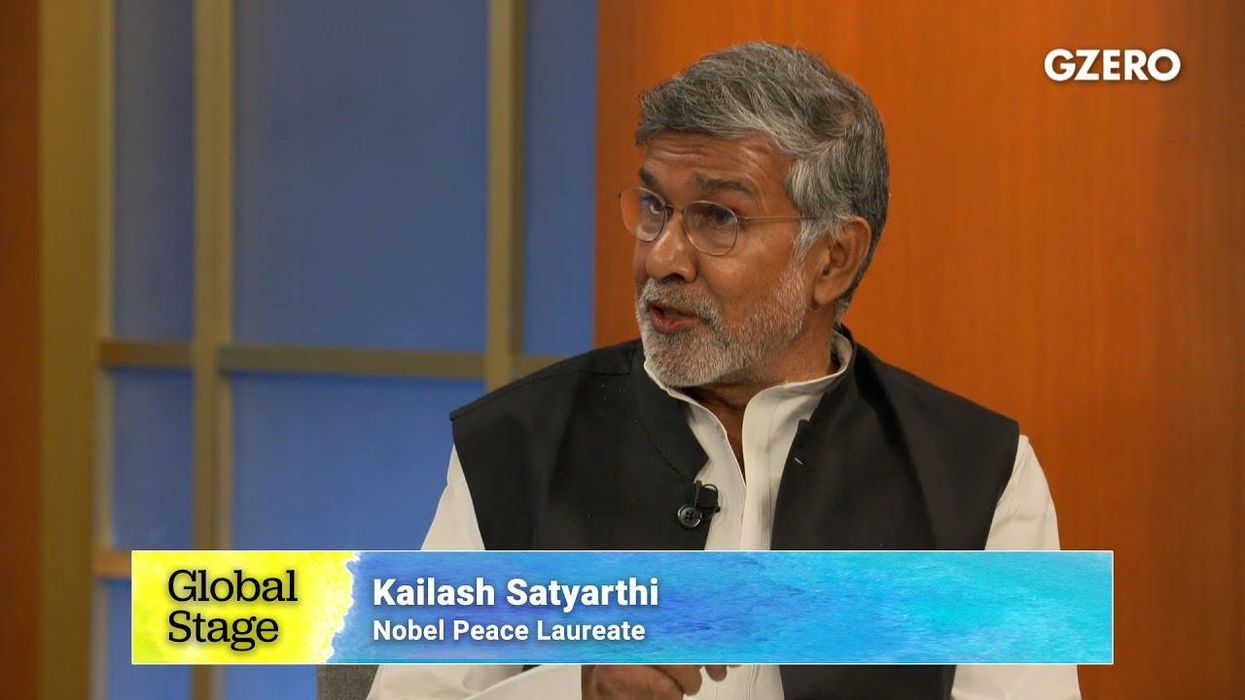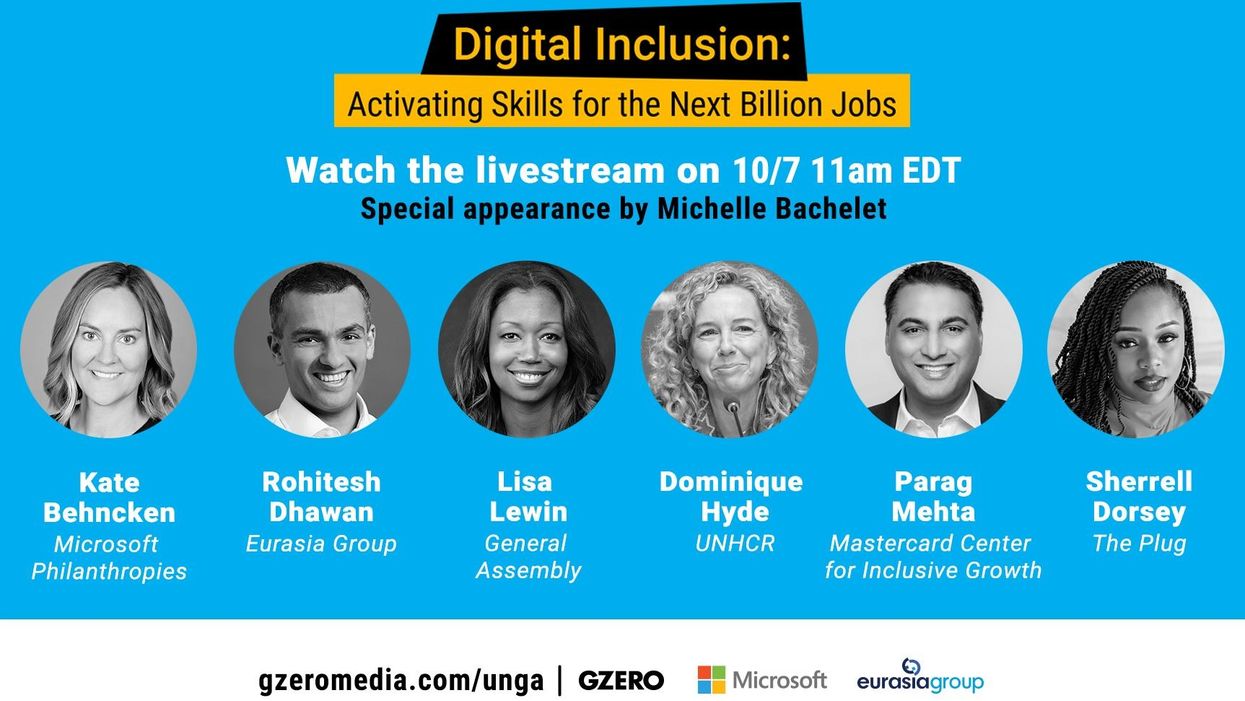GZERO World Clips
Can Trump's tariff plan boost the US economy?
President-elect Donald Trump has made no secret of his love of tariffs, vowing steep import taxes on China, Mexico, Canada, and almost every product that crosses the US border on his first day in office. Will they boost US jobs and manufacturing, as Trump promises, or lead to rising inflation, as many economists warn? On GZERO World, Oren Cass, founder and chief economist at conservative think tank American Compass, joins Ian Bremmer for an in-depth discussion about Trump’s tariff plan and the future of US-China trade policy.
Dec 10, 2024




